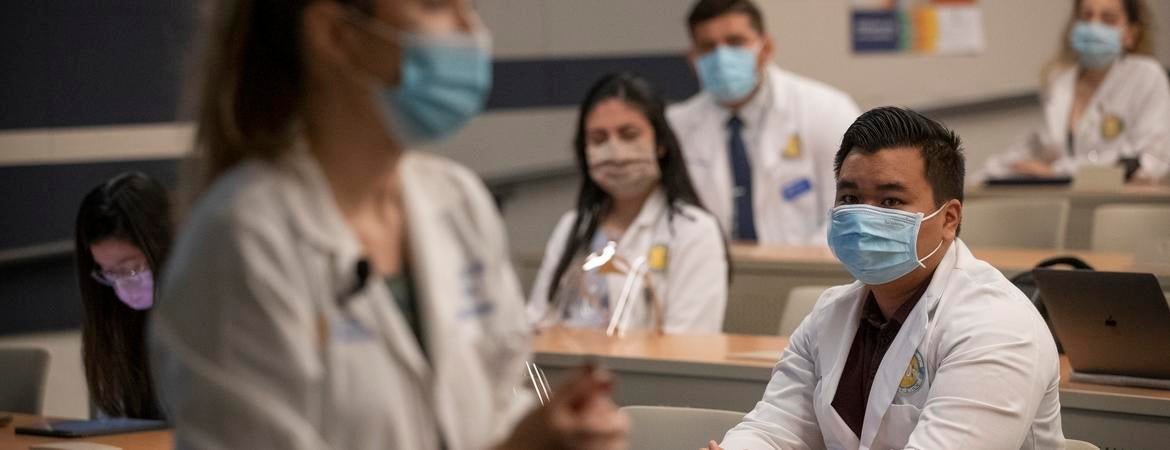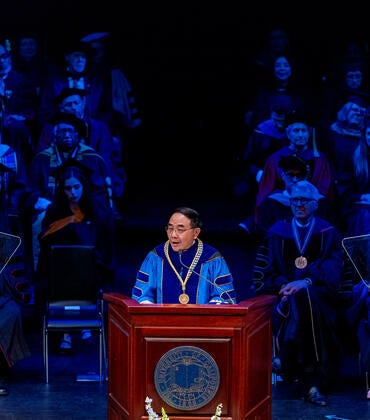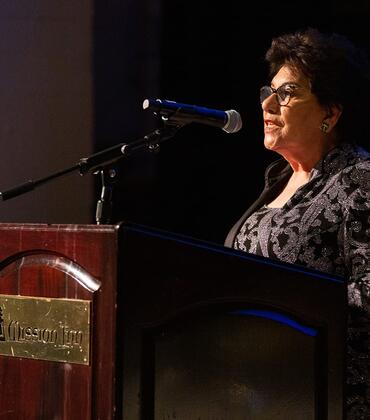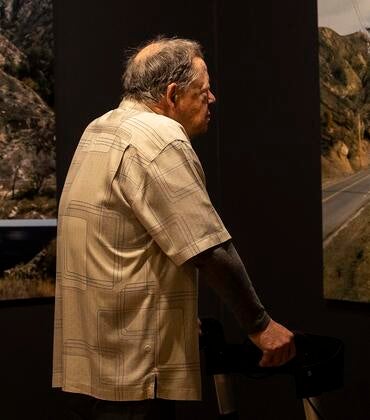
UC Riverside is taking the first steps in a months-long journey to reopening campus.
On Jan. 11, UC President Michael V. Drake announced a fall 2021 systemwide return to in-person instruction, a decision made unanimously with the 10 UC chancellors. Announcing the plan months ahead of fall quarter gives students and their families plenty of time to make well-informed choices, Drake said. UCR’s fall semester begins Sept. 23.
“Announcing that we will be predominantly in-person in the fall provides a ray of hope for all of us that we can get through this pandemic and begin seeing some normality return to our lives,” said Thomas M. Smith, UCR’s interim provost and executive vice chancellor.
The UCR campus was shuttered on March 16 because of the coronavirus pandemic, with a shift to remote learning, which will continue through summer quarter. The reopening announcement is predicated on the belief that COVID-19 vaccines will be administered widely, according to the UC president’s message.
“I am optimistic that most students will be vaccinated by fall,” Smith said. “Estimates of when the administration of the vaccine to the general public will occur vary, but if students take advantage of the opportunity to get vaccinated when available, we can have more courses in-person.”
Rodolfo Torres, vice chancellor of research and economic development, said it hasn’t been decided whether students, faculty, and staff will be required to get vaccines. Torres, who is among those coordinating campus logistics related to COVID-19 testing and vaccinations, said UC may also host an informational session about vaccination.
Torres also said it hasn’t been decided whether students will be required to take coronavirus tests in the fall, though he said some level of testing is likely to continue. Currently, students living on campus must test twice a week at “spit and go” stations. UCR is hosting a homegrown testing lab in its Multidisciplinary Research Building.
The campus closure led to a dramatic reduction in students living in on-campus housing: there were about 6,800 on campus prior to the pandemic; there are about 1,800 today, representing 27% occupancy. A reduction in hours for housing and dining staff and the elimination of hundreds of student jobs followed.
Lost revenue from housing and dining fees is about $100 million, said Gerry Bomotti, vice chancellor and chief financial officer.
“It will take years to recover from COVID,” Bomotti said. “We hope within five to 10 years we make it up, but it will depend how quickly students return to living in campus housing.”
In fall 2021, the student apartments associated with the North District project will open, adding 1,500 beds to the campus inventory. In fall 2020, the Dundee residence hall opened, with 243 of 820 beds filled, or 30%.
Smith said it’s likely there will still be some remote teaching in the fall; how much will depend on whether a high rate of vaccinations and/or widespread immunity is achieved. Decisions such as whether to require masks in classrooms are pending.
The director of the UCR Exploration Center for Innovative Teaching & Engagement, or XCITE, said faculty can continue to employ some of the teaching complements they have learned to use during the pandemic, including the Canvas and YuJa platforms.
“XCITE is planning to maintain the Keep Teaching website as an ongoing resource for instructors and faculty, as the site will continue to offer information and updates on pedagogy and educational technology options at UCR,” said Richard Edwards, the XCITE director.
Committees formed at the outset of the pandemic to recommend policies for testing, instructional continuity, and research — among other areas of campus operations — are ramping up the frequency of their meetings following Drake’s announcement. Updates will be posted on the campusreturn.ucr.edu site.



